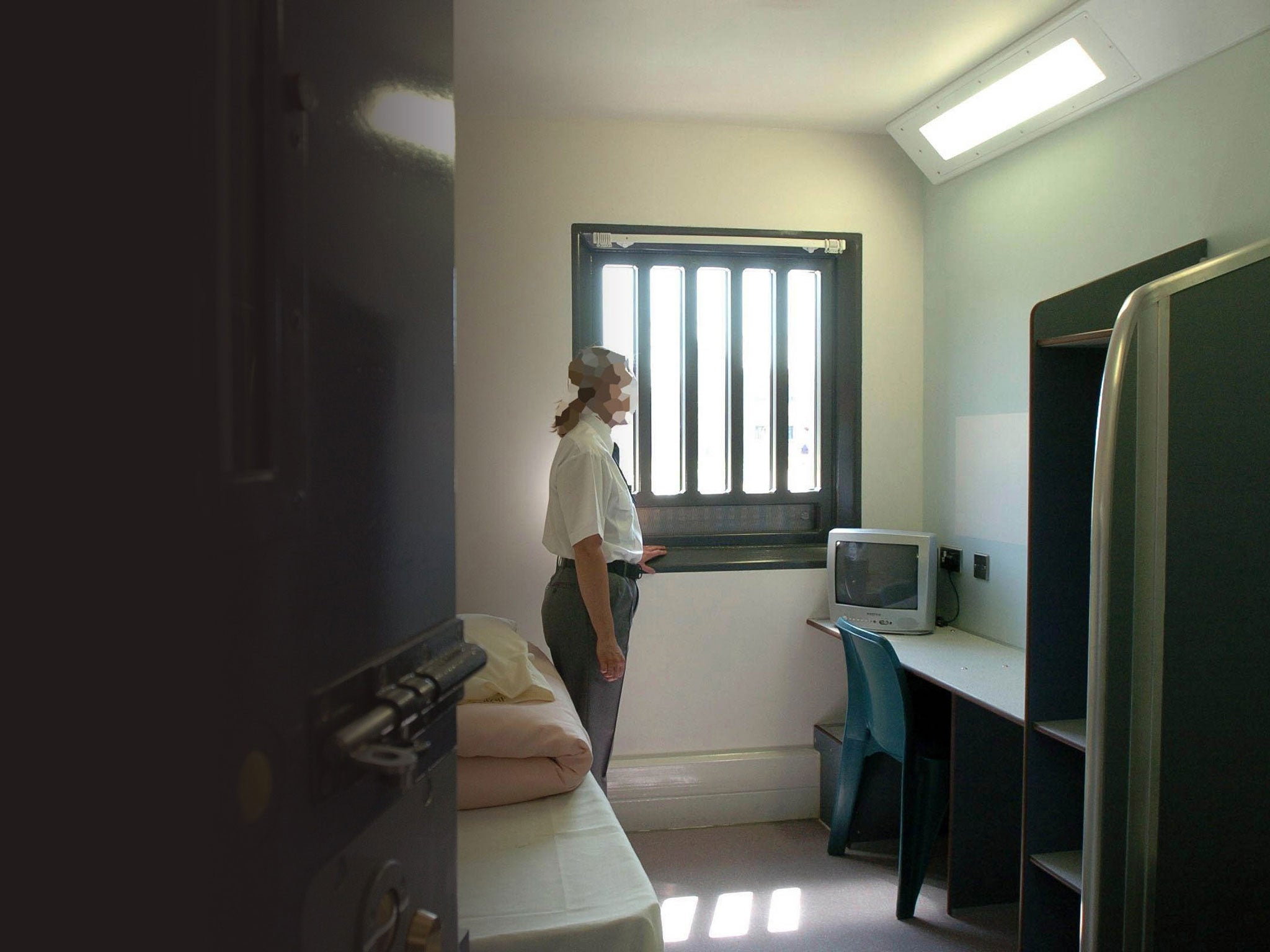The prisoner kept in a squalid, isolated cell for five years – and what it says about the way we treat women in jail

The “cruel, inhumane and degrading” treatment of a woman held in an austere and “squalid” cell for more than five years has prompted calls for the Government to address the “national failure” of not having a national strategy to manage some of Britain’s most challenging women prisoners.
The Chief Inspector of Prisons, Nick Hardwick, made the attack in a report published today on HMP Bronzefield women’s prison in Ashford, Surrey. Inspectors visiting the private prison, run by Sodexo Justice Services, in April last year, were shocked to discover a woman had languished in a segregation unit – where prisoners are held in virtual solitary confinement – for more than five years.
Her plight was first raised three years ago, when inspectors reported a woman “who had exhibited unpredictable and violent behaviour”, having “effectively been held in the segregation unit for three years with very little human contact”. They warned then: “The conditions in which she was held seemed likely to lead to further psychological deterioration and were completely unacceptable.”
Three years on, they were shocked to find her still there. “We were dismayed that the woman who had already been in the segregation unit for three years in 2010 was still there in 2013. Her cell was unkempt and squalid and she seldom left it,” said Mr Hardwick. The way in which she had been dealt with “amounted to cruel, inhumane and degrading treatment,” he added.
While the case is extreme, it is not the only one. HMP Bronzefield has more than 400 women, including a number of “restricted status” women – the equivalent of a category-A prisoner – some with severe personality disorders.
Inspectors discovered 68 women had been held in the segregation unit in the six months before the inspection took place. Too many were there for long periods, and despite some good work to support these prisoners, “their location in the unit was psychologically damaging”, the report says.

Although a national strategy exists to deal with prisoners who are particularly difficult to manage, it only applies to men. There is no strategy for women, something which the report calls a “national failure”. It urged the Government to come up with a “national strategy for managing women with complex needs who cannot be supported in the prison’s normal location.”
Campaigners and politicians have backed the report’s recommendations. Juliet Lyon, director of the Prison Reform Trust, said: “We are quick to condemn cruel, inhumane and degrading treatment in prison in other countries; now the Government must act to put right failings in our own women’s justice system.”
The former Prisons minister Crispin Blunt, MP for Reigate, said the report’s recommendation for a national strategy “should be looked at extremely carefully”. He added: “I don’t know the case but one would have to ask the question, given what has happened to her in five years, whether she should be in hospital rather than prison.”
And the “shocking case” highlighted in the report, “which appears to amount to torture”, should “shame ministers who tolerate the over-use of custody for women and consequent poor treatment”, commented Frances Crook, chief executive of the Howard League for Penal Reform.
Andy McDonald MP, a member of the Commons Justice Select Committee, said: “Ministers must look at developing a coherent national strategy to ensure standards in prison are equal for male and female inmates.”
Responding to what he dubbed a “truly shocking” case, Sadiq Khan MP, Labour’s shadow Justice Secretary, called on the Government to “ensure prisons are providing the right environment for women prisoners.”
In a statement, Charlotte Pattison-Rideout, director of HMP Bronzefield, pledged to “work towards further improving the quality of our services” and added: “We cannot comment on individuals. However, we would only segregate a restricted-status prisoner for any length of time if we felt that there was no other option available.”
And Michael Spurr, chief executive of the National Offender Management Service, said: “I recognise the importance of looking at our national approach to women in prison and a review was commissioned earlier in the year into the women’s custodial estate.”
But Baroness Corston, author of a landmark report in 2007 calling better management of women offenders, said: “I am truly shocked to learn that one woman has been kept in such degrading and unhygienic circumstances at all, never mind for five years.”
Further reaction to the report
Nick de Bois MP; Commons Justice Select Committee
“This year the Justice Select committee looked closely at the treatment of women offenders in the prison system and were concerned that not all the recommendations of the 2007 Corston report were implemented which recognised a tailored joined-up approach across Government was needed for some women offenders in particular. Some progress has been made nevertheless but more needs to be done at a national strategic level. This is not about treating women more favourably or suggesting that they are less culpable, but It is about recognising that women face very different hurdles from men both in the prison estate and on their journey to rehabilitation.”
An NHS England spokesman
“NHS England became responsible for the healthcare provision at HMP Bronzefield in partnership with the national offender management service on the 1st April 2013. We are working at a local level to implement the recommendations from the HMIP report.”
Gareth Johnson MP; Commons Justice Select Committee
“It was disturbing to hear of the prisoner who had been kept in the segregation unit in HMP Bronzefield for more than 5 years. The previous inspection of Bronzefield in 2010 also made reference to this particular woman's position and highlighted that she exhibited unpredictable and violent behaviour and the significant psychological impact that segregation was having on her.
That fact that inspection in 2013 found this lady's position to be unchanged is entirely unacceptable. I fully recognise the difficulties faced in managing violent offenders or those with mental health problems within the prison system and the importance of ensuring the safety of prison staff and other inmates. However, this should not be lead to the most challenging of prisoners being held inhumanely. Nothing is gained by keeping prisoners in squalid conditions.
The treatment of women in the Justice System has recently been examined by myself and my colleagues on the Justice Select Committee. We found that despite improvement, female prison estates are still not configured to best manage the women they hold. This seems to particularly be the case for women who are identified as 'restricted status', which is the equivalent of a male Category A prisoner.”
Baroness Stern; Parliamentary Joint Committee on Human Rights
“To describe, as the chief inspector did, that the way in which a prisoner is held amounts to cruel, inhumane and degrading treatment is very unusual if not unprecedented.” She added that this case “highlights how the prison system fails women” and that, because of the small number of women prisoners compared to men, “they end up being an afterthought.”
Graham Stringer MP; Commons Justice Select Committee
“This shameful episode indicates the government needs to focus more on the particular and different needs of women in prison.”
